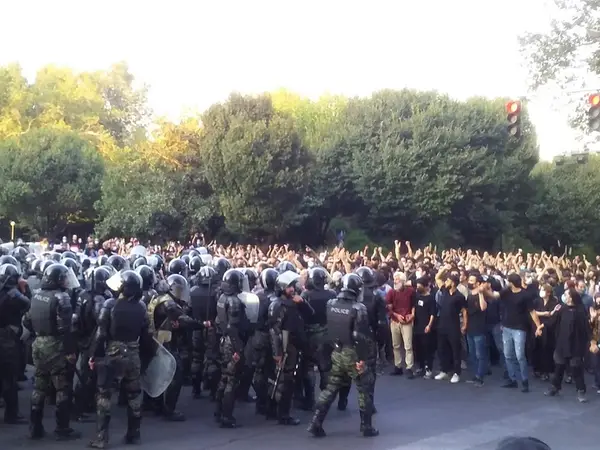A leading reformist figure in Iran says the Iranian regime has shifted its point of reliance and source of legitimacy from the people to the military.
Mohsen Mirdamadi said in an interview with Etemad newspaper that revolutions and revolutionaries generally know what they don't want, but they do not have a clear idea about what they really want. Many revolutionaries typically find out after several years that many of their ideas and ideals cannot materialize. This is what happened in Iran after the 1979 revolution.
Mirdamadi said that two major shifts happened in Iran after the Islamic revolution. First, a school of thought that did not believe in the people's vote got the upper hand and tried to limit the power of votes and elections. Many of those in the Iranian government belong to this current.
The second shift occurred in the point of the regime's reliance. Gradually the regime began to rely on its military forces rather than on the support of the people.
Elsewhere in the interview, Mirdamadi criticized the Iranian rulers' approach to enforcing hijab. He said that hardliners made hijab a security issue rather than a social issue about lifestyle. These changes, said Mirdamadi, led to the protests in the autumn of 2022 and plunged the country into its most important crisis in four decades.
Mirdamadi added that currently it is the military that makes most decisions in the economy, as well as domestic and foreign policies. The result is an unhappy population.
Like many other commentators, Mirdamadi also believes that recent protests were not simply the result of Mahsa Amini's death in custody. The protests were the outcome of accrued unhappiness and dissatisfaction. He added that the apparent lull in the street protests does not mean the movement has ended. This is a point also shared by others including leading conservative figure and regime insider Mohammad Reza Bahonar, who is a member of the Expediency Council.
Meanwhile, another conservative figure, lawmaker Mostafa Mirsalim in an interview with Khabar Online warned that the next parliamentary elections in less than a year is likely to be adversely affected by political corruption and political factions whose interests can be served only based on lack of transparency in the system and winning illegitimate concessions from the center of power.
In unprecedented comments, the hard-line conservative lawmaker acknowledged that most Iranians lost their hope in the system as a result of regime’s behavior and the only thing that can restore hope in the system is introducing social justice. However, he did not say how social justice can work in a political atmosphere overwhelmed by corruption and concessions for the privileged few and the progeny of men of power.
Meanwhile, international relations analyst Ali Bigdeli said in an interview with ILNA that hardliners who boasted about belittling the United States and turning the White House into a Mausoleum have brought about misery for Iran and made it a backward country.
Bigdeli advised that Iranian rulers should change their attitude toward the world and do away with emotionally charged statements against other country. He said reaching agreement with Saudi Arabia to restore ties is a good example of how flexible Iran needs to be in its foreign policy.
Nonetheless, Bigdeli slammed the Foreign Ministry for making ad hoc decisions rather than following a pre-defined strategic vision. He charged that the Foreign Ministry certainly lacks a roadmap about how to further Iran's relations with what he called "imperialist" countries, presumably the United States, China and Russia, and even the Persian Gulf littoral states. Lack of such a defined policy will do harm to Iran's interests, Bigdeli said.
